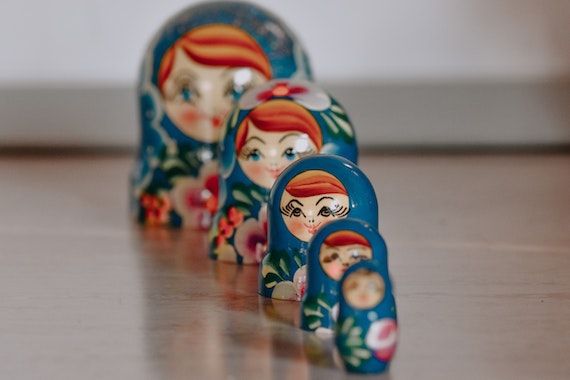Six months later, the Russian currency has not only recovered, but is now much stronger than before Ukraine’s aggression against the US dollar and the euro. (Photo: Didssph for Unsplash)
FOCUS ON THE WORLD. Six months after invading Ukraine, Russia is resisting Western economic sanctions better than expected. In the long run, however, its economy will suffer from these sanctions, although they are unlikely to encourage Moscow to cease its aggression.
In the second quarter of 2022, Russia’s GDP shrank by 4%, according to the federal agency Rosstat. Before these stats were released, analysts polled by Reuters had been expecting a 7% decline.
Interest rates remain high, although the Bank of Russia cut interest rates several times to bring it to 8% at the end of July. This level is even lower than before the February 24 invasion of Ukraine.
In the weeks following the invasion, the institution had raised it to 20% (in addition to tight controls on capital flows) to prop up the ruble in money markets.
Six months later, the Russian currency has not only recovered, but is now much stronger than before Ukraine’s aggression against the US dollar and the euro.
Inflation in Russia has also fallen. According to Rosstat, it was 15.1% in July, slightly down from 15.9% in June.
We are a long way from the collapse in Russia’s economy that several analysts had been expecting in the weeks following the attack. One can understand that this scenario was plausible given the historic magnitude of the sanctions – which have been steadily tightened since February.
Has the West Underestimated Russia’s Resilience?
It’s clear that Westerners may have underestimated the resilience of Russia, which has strengthened its autonomy and diversified its markets since annexing Crimea in 2014. An annexation that also resulted in a package of economic sanctions that is still in effect.
However, Vladimir Putin’s Russia is not out of the woods yet.
The latest International Monetary Fund (IMF) economic forecast, released in July, expects Russia’s GDP to contract by 6% for all of 2022 and 3.5% next year.
The country is in and will remain in recession for the foreseeable future. Russia’s international trade has also been disrupted for the past six months, starting with its oil and natural gas exports.
While European countries have massively reduced their hydrocarbon imports from Russia, other countries have increased theirs, including India and China — Beijing has also shipped some military supplies to Russia, according to US-based Foreign Policy magazine.
Canada’s international trade with Russia was also destabilized according to Statistics Canada data for the months of February, March, April, May and June (the most recent month).
In fact, Canadian exports have plummeted over this period compared to the same months in 2021, with monthly declines ranging from 83% to 98%!
You read that right, 83% to 98%.
Imports also fell, but not proportionally to exports. During those five months, monthly declines range from 18% to 80% compared to the same period in 2021.
Notably, Canada’s nickel imports from Russia broke a 24-month record, reaching CAD$22 million in June. However, the exception proves the rule.
Sanctions will hurt a lot in the long run
Admittedly, Russia has so far defended itself better than expected against the sanctions.
On the other hand, according to various analyses, in the long term its economy can only suffer from the effects of these measures, from the dynamism of its industrial base to its ability to innovate, including the risk of technological underdevelopment.
For example, around 1,000 Western companies – which account for 40% of Russia’s GDP – have scaled back operations in the country. According to a recent study (“Business Retreats and Sanctions Are Crippling the Russian Economy”) by researchers at Yale University’s Chief Executive Leadership Institute, this situation is “paralyzing” the Russian economy.
the FinancialTimes from London believes that the biggest impact on the Russian economy could ultimately be the loss of Western technologies and components.
However, China and other “friendly” countries of Moscow cannot fully replace these products, the loss of which in Russia is already affecting manufacturing enterprises, producers of natural resources and the military-industrial complex.
Moreover, the Russian economy is not in this situation for the first time.
After the invasion of Afghanistan by the former USSR in 1979, the industrialized countries also reduced their high-tech exports to the Soviet economy, he recalls FinancialTimes.
“These stifled Soviet growth and deepened its technological backwardness, which together with falling energy prices caused a deep crisis in the late 1980s.”
Is history repeating itself four decades later?
Will the Putin regime collapse like the former Soviet Union did in 1991?
Very clever, who can predict. The more time passes, the less Russia will have the ability to conduct a long military campaign in Ukraine or to attack another country in Eastern Europe.

Avid beer trailblazer. Friendly student. Tv geek. Coffee junkie. Total writer. Hipster-friendly internet practitioner. Pop culture fanatic.




;Composite=(type=URL,url=https://images.radio-canada.ca/v1/assets/elements/16x9/outdated-content-2021.png),gravity=SouthEast,placement=Over,location=(0,0),scale=1)


